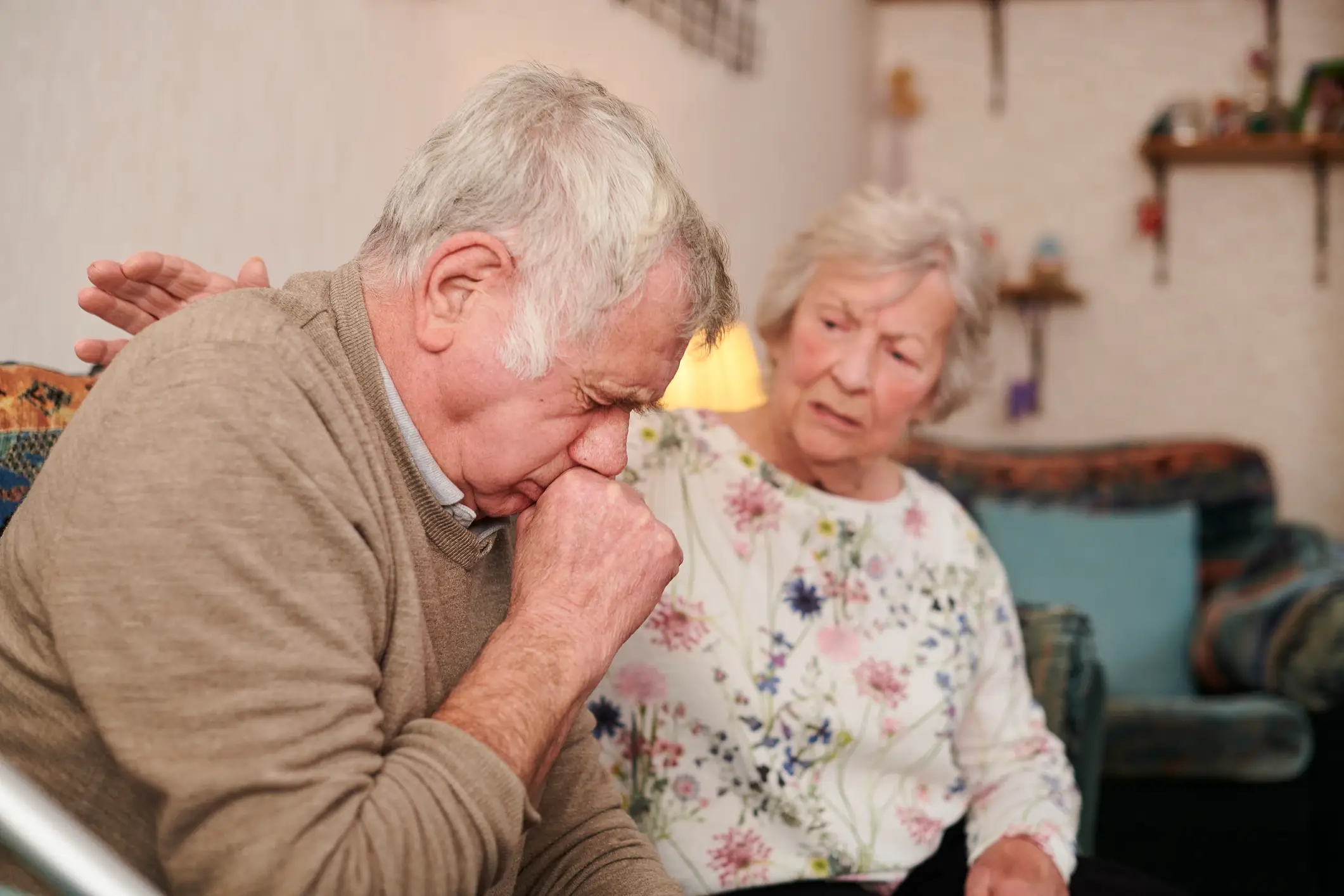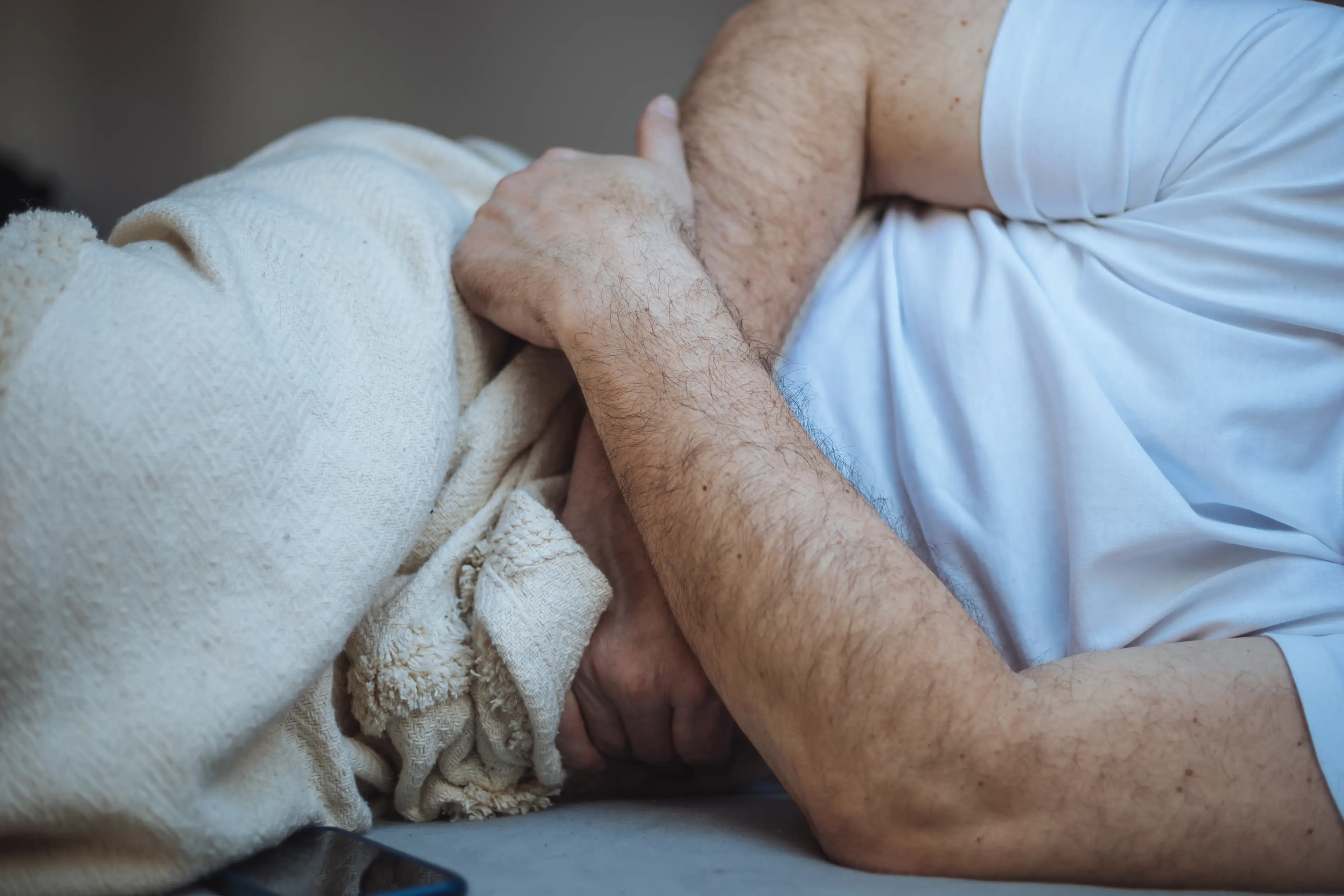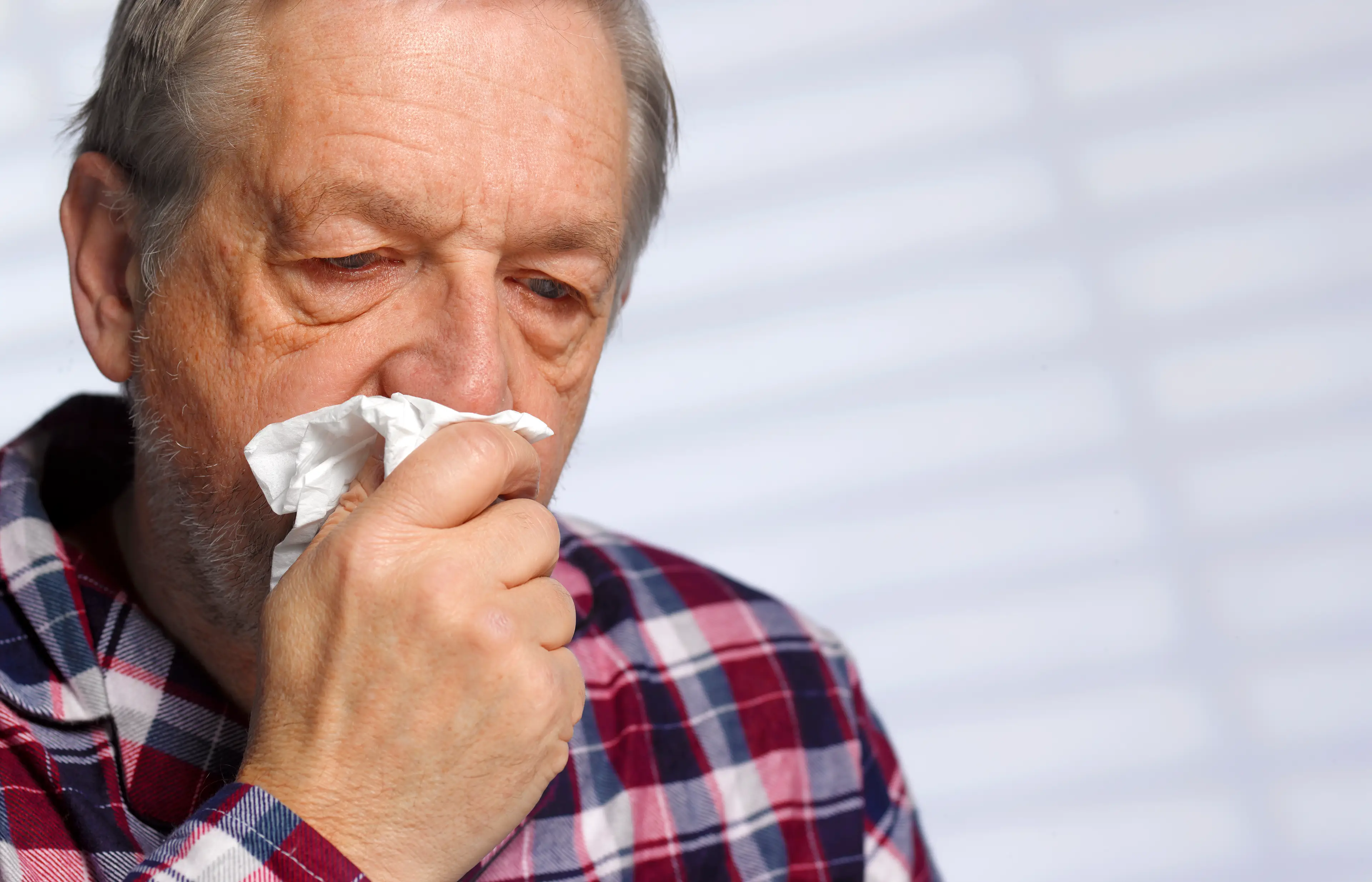
With only two weeks to go until Christmas we're entering the 'I cannot get sick right now' territory where any sort of illness you contract might hang around until the festive celebrations.
You don't want to be unwell for a day of feasting and watching the new Wallace and Gromit movie, much less spread whatever you've got to the nearest and dearest you're spending your time with.
NHS officials have warned that the UK is facing a 'quad-demic' of flu, respiratory syncytial virus (RSV), Covid and norovirus, and this is the time of year when pretty much everyone you know starts getting a cold as well.
Assuming you don't want to make others unwell, it's worth knowing how to tell if you're still contagious with whatever ails you this winter.
Flu

Advert
The NHS says that you're most likely to spread flu, which is highly contagious, to other people within your first five days of getting it.
Your coughs and sneezes will spread diseases as the germs which might infect others can last on a surface for up to 24 hours, and people with the flu tend to be contagious for up to seven days after first showing symptoms.
If you've made it 24 hours after having symptoms for the flu then you are likely to be no longer contagious, in particular if you haven't had a fever for 24 hours and haven't been taking medication to treat this symptom then you should be clear of it.
Make sure to wash and clean everything you've been touching so you don't spread it to other people via surfaces and contact right as you're coming off the nasty disease.
Respiratory Syncytial Virus

RSV is highly contagious, and while it can often bear a resemblance to the common cold in more serious cases it will result in wheezing and a more severe lung infection.
Like the flu, RSV is spread from coughs and sneezes and the virus can survive on surfaces for several hours after landing there.
A person with RSV is going to be contagious for the first couple of days before they develop symptoms, and the NHS says most people with the disease will stay contagious for the next three to eight days and it's probably best to err on the side of caution.
Young children or people with weakened immune systems can stay contagious for up to four weeks, so you'd best wait for symptoms to end.
Coronavirus

One of the newer and more unpleasant diseases you can suffer from, plenty of people will be familiar with the fact that a person with Covid still poses a risk of being contagious after their symptoms have subsided.
If you come down with the coronavirus you can still be contagious for up to 10 days after symptoms start showing, according to the NHS, and you might want to keep doing tests to see whether or not you still have the disease before doing anything which would require you to leave the house or go to a gathering of people.
Unfortunately with Covid there are people who have it who are asymptomatic, meaning you could be contagious without even knowing it.
Norovirus

The surge in norovirus cases is what led health officials to warn that a 'tripledemic' might have warped into a 'quad-demic'.
Also known as the 'winter vomiting bug', norovirus is most contagious from the point that symptoms begin until two days after symptoms have stopped.
NHS advice says you should avoid making contact with people until it has been two days since you last had symptoms, so it's best to play it safe.
Common cold

Even if it's not quite as terrible as the other entries on this list the common cold can still be a menace during the winter.
A cold could be mistaken for a mild case of flu or RSV, but if you don't have those and it's a cold then you'll stop being contagious once your symptoms have come to an end.